Speakers & Sessions
Topics include— updates on ACI Codes and initiatives, concrete repair, environmental engineering, and much more.
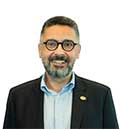
Fouad Yazbeck, FACI, Conference MC
Fouad Yazbeck, FACI, is the Founder of 360 TANGENT Engineering Consultancy, based in Abu Dhabi, UAE. The company specializes in concrete technology and sustainability and has designed, produced, and placed over 22,000,000 m3 of high-performance concrete in the Middle East and Africa.
Fouad is an ACI Fellow; Chair of ACI Committee 234, Silica Fume in Concrete; a founding member of the ACI Lebanon Chapter; and the founding President of the ACI UAE Chapter.
He was recently appointed ASTM International’s Global Cooperation Representative for the Middle East and North Africa (MENA) region.
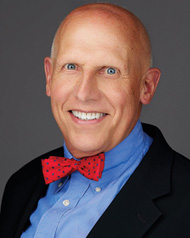
Michael J. Paul, ACI President
Michael J. Paul, FACI, has more than 40 years of construction and engineering experience and is a recognized leader in the concrete industry. He currently serves as Principal Structural Engineer for Larsen & Landis, Inc., based in Philadelphia, PA, USA. In this role, he oversees the engineering, documentation, and management of structural engineering for commercial, institutional, industrial, recreational, and residential projects. Paul’s experience includes troubleshooting; repair, restoration, and rehabilitation of existing concrete structures; and new structure design.
In addition to his ACI activities, Paul is an active member of ASTM International, serving on ASTM Committee E06, Performance of Buildings. He is a member of the Historic Preservation Commission of the Town of Oro Valley, AZ, USA, and is acting Coordinator in the state Disaster Assistance Program for the Arizona Chapter of the American Institute of Architects (AIA). He is also a past member of the American Society of Civil Engineers (ASCE) and served on the editorial panel of the journal Leadership and Management in Engineering.
Paul’s contributions to the industry are also evidenced by his 20 years of undergraduate teaching. He was the Coordinator for the Senior Design capstone course in the Department of Civil, Construction, and Environmental Engineering at the University of Delaware, Newark, DE, USA. The course received the National Council of Examiners for Engineering and Surveying (NCEES) Engineering Award Grand Prize in 2010.
Presentation Title: ACI International Update: New Initiatives for Sustainable Concrete
This presentation offers a brief introduction to the ACI mission and key products, services, and initiatives developed and maintained by ACI volunteers and supported by ACI staff. The session will focus on recent ACI updates as the leading global authority for the development, dissemination, and adoption of its consensus-based standards and technical resources, which are recognized and used globally to help ensure safe, durable, and sustainable concrete projects. The presentation will highlight recent ACI codes and standards that address sustainability.
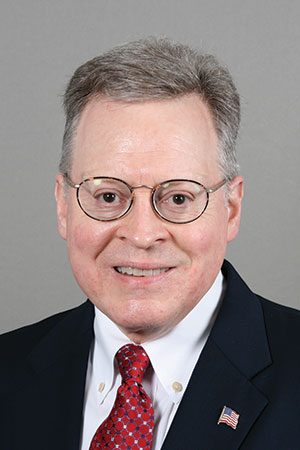
Frederick H. Grubbe, MBA, CAE, ACI Executive Vice President
Frederick H. Grubbe, MBA, CAE, is the Executive Vice President of ACI and worked at the U.S. Department of Transportation as a Special Assistant to the Secretary and White House Liaison, prior to serving as Deputy Administrator of the National Highway Traffic Safety Administration. In 1992, President George H.W. Bush appointed Grubbe as Deputy Director of the U.S. Office of Consumer Affairs in the White House. During his tenure at NPCA, Grubbe oversaw the continued growth and success of The Precast Show, the precast concrete industry’s largest trade show. He also successfully led the organization’s staff, operations, programs, and activities through the COVID-19 pandemic, while achieving the organization’s strategic objectives, implementing its tactical plans, and earning member satisfaction. As President and CEO, Grubbe served as an ex-officio Board of Directors and Executive Committee member, as well as NPCA Foundation president and ex-officio Board member.
Grubbe is an active member of the American Society of Association Executives (ASAE), currently serving on the Board of Directors for ASAE Business Solutions (ABSI), a for-profit subsidiary of ASAE. He also served as Chair of the Board of Directors for the Association Forum of Chicagoland.
A Certified Association Executive (CAE), Grubbe received his Master of Business Administration from Loyola University Chicago.
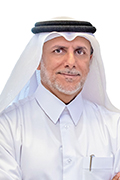
Dr. Yousef M. Alhorr
Dr. Yousef Alhorr is the Founding Chairman of the Gulf Organisation for Research & Development (GORD), which is an RDI entity, recognized among leading organizations in the global sustainability milieu. Under Dr. Alhorr’s visionary leadership, GORD has made significant strides in promoting sustainable practices, conducting groundbreaking research, and implementing innovative solutions to address pressing environmental challenges.
Dr. Alhorr is also Founding Chairman of the Global Carbon Council (GCC), which is the first international voluntary carbon market and sustainable development program based in the Global South, accredited by the United Nation's International Civil Aviation Organization (ICAO) for the CORSIA scheme and the International Carbon Reduction and Offsetting Alliance (ICROA).
In 2023, Dr. Alhorr laid the foundation of GORD 3D, which provides the latest technologies within 3D printing, prototyping and digital inventories, etc. He also led the development of the Global Sustainability Assessment System (GSAS) – the first performance-based system in the Middle East and North Africa (MENA) region, aimed at assessing and rating green buildings and infrastructures.
Dr. Alhorr has led many research projects, including his patented ultra-efficient hybrid cooling system called Synergia 7n1, which won an international award for the best energy innovation in 2022 and the patent was published by the World Intellectual Property Organization (WIPO).
On a regional level, Dr. Alhorr holds the position of President of the Technical Committee for Sustainable Buildings, which is part of the GCC Standardization Organization (GSO), where he actively contributes to shaping and implementing sustainable building standards in the Gulf region.
Dr. Alhorr has been invited as the keynote speaker in various regional and international conferences to share insights and knowledge on climate change and sustainability related topics.
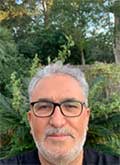
Abdeldjelil Belarbi, Ph.D., P.E. , F.ACI, F.SEI, F.ASCE, F.IIFC, Distinguished Professor, University of Houston
Dr. Abdeldjelil Belarbi, Ph.D., P.E. , F.ACI, F.SEI, F.ASCE, F.IIFC, is a Hugh Roy and Lillie Cranz Cullen Distinguished Professor of Civil Engineering at the University of Houston, Houston, TX, USA. Prior to joining the University of Houston in 2009, he was a Distinguished Professor at Missouri University of Science and Technology, Rolla, MO, USA.
Belarbi is a Fellow of ACI, the American Society of Civil Engineers (ASCE), the Structural Engineering Institute (SEI), and the International Institute for FRP in Construction (IIFC). He is also very active (member and/or Chair) on several national technical committees within ACI, the Precast/Prestressed Concrete Institute (PCI), ASCE, and the Transportation Research Board (TRB). He is very active in the development of design guidelines for both ACI 318 and American Association of State Highway and Transportation Officials (AASHTO) specifications.
Belarbi has served as Principal Investigator or Co-Investigator on numerous research projects, has published over 260 technical papers and reports, and has supervised over 50 MSCE theses and PhD dissertations. He is the recipient of over 30 national and university awards and honors for his excellence in research, teaching, and professional activities.
He is actively engaged in a broad spectrum of structural engineering research areas. His research interests include the constitutive modeling and analytical and experimental investigations of structural concrete. His research has also focused on smart structures and the use of fiber-reinforced polymer (FRP) composites and other advanced materials, such as high-strength stainless steel and shape-memory alloys, which can be applied for the rehabilitation and strengthening of aging and deteriorated civil engineering infrastructure and the design and construction of new structures.
Presentation Title: Advances and State-of-Practice in the Use of Corrosion-Resistant Reinforcement towards a more Durable and Sustainable Civil Engineering Infrastructure
For many decades, several researchers have reported on issues of corrosion, which include harm to human health and damage to civil engineering infrastructure, and it was estimated that corrosion costs the world approximately 2.5 trillion USD annually. Over many decades, researchers have studied the effects of natural hazards such as earthquakes, wildfires, severe weather, and environmental disturbances with a primary goal to design and build a safe, resilient, and durable civil engineering infrastructure.
The durability of reinforced concrete (RC) and prestressed concrete (PC) structures is related to the susceptibility of metal reinforcements to the well-known phenomenon of corrosion. Corrosion can occur in different forms, with different degrees of progression, under different environmental conditions. In past decades, corrosion professionals focused primarily on new construction materials and designing corrosion prevention systems for various key infrastructure elements. In the last five decades, researchers and engineers have focused on new and advanced materials to either prolong the life of existing infrastructure by means of repair and retrofitting or design and build new structures using these advanced materials. As a good example, fiber-reinforced polymers (FRPs) became an alternative material for a broad range of civil engineering applications. Also, high-strength stainless steel (HSSS) strands were introduced to the construction industry as another corrosion-resistant and potentially viable alternative to conventional carbon steel (CS) strands in corrosive environments. Accordingly, this presentation provides an overview of new developments in the use of these materials associated with derived new techniques and design methodologies, as well as the state-of-the-art and state-of-practice in advanced materials and their use in civil engineering, which promises a more durable and resilient infrastructure.
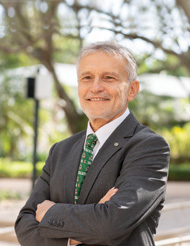
Antonio Nanni, PhD, PE, ACI Past President 2023-24
During the past 35-plus years, Antonio Nanni has studied concrete and advanced composite-based systems as the principal investigator on several research projects sponsored by federal and state agencies and private industry. His research in materials and structures has impacted the development of guides, specifications, and codes in the United States and abroad.
Nanni served as the Editor-in-Chief of the American Society of Civil Engineers (ASCE) Journal of Materials in Civil Engineering for over 20 years and serves on the editorial boards of other technical journals. He has advised more than 80 graduate students pursuing master’s and doctoral degrees and has published extensively (over 315 papers in refereed journals, over 420 papers in conference proceedings, and co-author of two books).
Nanni has received numerous awards, including the 2019 Knight of the Order of the Star of Italy from the President of Italy; the 2018 John B. Scalzi Research Award from The Masonry Society; the 2017 ASCE Richard R. Torrens Award for outstanding performance as Editor-in-Chief of the Journal of Materials in Civil Engineering; the 2017 Outstanding Service Award from the Florida Engineering Society (FES); and the 2016 Foreign Member from Accademia delle Scienze dell’Istituto di Bologna, Italy. He has also contributed to field projects that have received awards from organizations such as FES and the International Concrete Repair Institute (ICRI).
His research interests include construction materials and their structural performance and field application, including monitoring and renewal with a focus on sustainability. He is currently Site Director of the National Science Foundation’s Industry-University Cooperative Research Center for the Integration of Composites Into Infrastructure (CICI). He is a licensed professional engineer in Italy and the states of Florida, Pennsylvania, Missouri, and Oklahoma.
Presentation Title: Seawater Concrete and Innovative Ideas for Sustainable Concrete
The aim of the session is to present the most recent developments and challenges in the adoption and use of a sustainable and durable concrete made from appropriate binders, saltwater, chloride-contaminated recycled concrete aggregates, modified fine aggregates (sand dunes or sea sand), and coarse lightweight petroleum-coke aggregates reinforced with polymer-based noncorrosive reinforcement. The session will provide the opportunity to announce the formation, scope, and objectives of a recently established consortium named NovusCrete, as well as ACI Committee 243, Seawater Concrete.

Dean Frank, PE
Dean Frank currently serves as the Executive Director of NEU: An ACI Center of Excellence for Carbon Neutral Concrete. He previously served as Principal/Consultant for Dean Frank Associates, LLC; Director of Quality & Sustainability Programs at the Precast/Prestressed Concrete Institute (PCI); and Director of Technical Services at the National Precast Concrete Association (NPCA).
He has been an active member of related industry committees, including ACI, ASTM International, PCI, and the International Federation for Structural Concrete (fib), for over 20 years. He obtained his MS in structural engineering from the University of Colorado Boulder, Boulder, CO, USA. He is a licensed professional engineer in Colorado and Indiana.
Presentation Title: Current Landscape of Low-Carbon Concrete Materials
This presentation will provide a brief update on an ongoing state-of-the-art survey being coordinated by NEU: An ACI Center of Excellence for Carbon Neutral Concrete, which was established by the American Concrete Institute to collaborate globally to drive education, awareness, and adoption of the use of carbon-neutral concrete materials and technologies. The intent of the survey is to identify new and existing companies offering materials and technologies intended to reduce the embodied carbon of cement and concrete. Answers are being collected to questions such as:
- What is available now and in which regions? What will be available in five-years and where?
- What type of material or technology is it?
- What is the current Technology Readiness Level (TRL) and business funding level?
- How much embodied carbon reduction can be attained?
- What are the key challenges related to the material or technology?
As this is an ongoing project, key findings to-date will be reported.
Panel Discussion: From Policy to Placement
Moderated by Dean Frank, NEU Executive Director
This panel discussion will bring together representatives from key agencies, responsible parties, and technology suppliers, who will be given an opportunity to participate in lively discussions centered around the following core topics:
- What are local agencies and researchers doing with respect to increasing the use of low-carbon materials and technologies in concrete construction in the middle east?
- What is needed for successful implementation? Hearing the perspectives of designers, producers, and contractors.
- Pulling it all together – how best to collaborate from policy to placement.
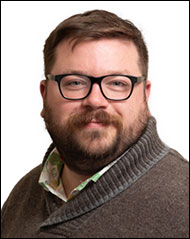
Matthew P. Adams, PhD, FACI
Dr. Matthew Adams is an Associate Professor and Co-Director of the materials and structures (MatSLab) at the New Jersey Institute of Technology in Newark, NJ, USA. His research focuses on the sustainability, resiliency, and long-term durability of innovative cement-based materials. He also studies how governmental policies both support and hinder the adoption of sustainable practices in construction. He is a fellow of the American Concrete Institute, where he is currently Chair of ACI Committee 323, Low Carbon Concrete Code, a member of ACI Committees 201, Durability; and 555, Recycled Materials in Concrete. He is a member of ASTM International where he chairs the Subcommittee on Testing for Strength of Concrete; and a member of the Transportation Research Board, where he serves on the Committee on Concrete Durability. Adams has received research funding from the U.S. Department of Transportation, Federal Highway Administration, Port Authority of New York and New Jersey, New Jersey Department of Transportation, and the American Concrete Institute Foundation. He received his undergraduate degree from the University of New Hampshire in 2006, and his Master of Science and PhD degrees from Oregon State University in 2012 and 2015, respectively.
Presentation Title: Introducing ACI Code 323: Overview and Implementation
ACI CODE-323, Low-Carbon Concrete, was recently published by the American Concrete Institute in November of 2024. This new Code provides provisions for setting global warming potential (GWP) limits for concrete materials using a carbon budget approach. This, first-of-its-kind model building code sets a standard for how limits on GWP should be set for concrete construction moving forward. This presentation will provide an overview of the Code requirements, how the code may be adopted, and examples on the type of documentation likely needed when the code is required. An example case study of using the code will also be provided. Additionally, some background on the need for such a code, and how the code document was developed by ACI Committee 323 will be discussed.
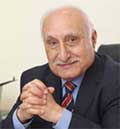
Professor Mufid A. Samarai
Mufid A. Samarai is the Senior Engineering and Education Advisor at Sahara Communications, UAE. He has held prestigious positions, including Professor of Civil Engineering, Chair, and Deputy Dean of the Engineering College at Baghdad University. He also served as the National Centre for Construction Laboratories General Director (NCCL) and Deputy Minister of Housing and Reconstruction in Iraq. In Jordan, Prof. Samarai was the Dean and Director of Research at the Applied Science University. At the University of Sharjah in the UAE, he was the Director of Research, the Chair of the Civil Engineering Department, and the Director of the University's Central Laboratories. Prof. Samarai earned his Ph.D. from University College London in 1976 and has dedicated his career to teaching, research, and consulting. His expertise includes repairing over 100 structures and bridges across Iraq, Jordan, and the UAE.Internationally, Prof. Samarai has served as the Vice President of CIB (Holland), a Bureau Member of RILEM (France), and the President of MEDMA (Germany). He is also a Fellow Research Officer at LNEC (Portugal) and a Board Member of The Arab Institute for Maintenance and Operations (OMAINTEC), Saudi Arabia. Prof. Samarai’s contributions to research, education, and community service have earned him numerous accolades in Iraq, Jordan, and the UAE. He is a sought-after keynote speaker and has participated in scientific committees at various international conferences. His research interests span multiple topics, including quality control, low-cost housing, non-destructive testing, durability, heritage and historic building conservation, damage assessment and repair of structures, and sustainability. He has over 230 published papers, one book, two chapters, and four patents.
Presentation Title: Artificial Intelligence, Machine Learning, And ACI Code 562: The Future of Concrete Technology, Evaluation, And Repair
The construction sector is a dominant consumer of global resources and energy, with cement production alone contributing approximately 7% of total CO₂ emissions. This significant environmental impact underscores the imperative for sustainable methodologies, stringent quality assurance, and extended durability within the built environment. Although advancements in concrete technology offer potential solutions, the increasing complexity of cementitious compositions introduces challenges in consistently achieving desired material properties. Machine Learning (ML) emerges as a pivotal tool for optimizing mixture design parameters and forecasting material performance; however, integrating ML with established industry standards remains a focal area for development.
This presentation delves into integrating Artificial Intelligence (AI) and ML within concrete technology, structural engineering, and maintenance protocols, emphasizing advancing the implementation of the American Concrete Institute (ACI) Code 562. ACI 562 provides a structured framework for assessing, repairing, and rehabilitating concrete structures, yielding extensive inspection and diagnostic data. We explore methods by which this data can be leveraged in ML models to enhance predictive maintenance, automate deterioration detection, and refine repair decision-making processes. AI-driven models, trained on ACI 562-specific assessment data, enable continuous structural monitoring, reduce subjective assessments, and support proactive strategies for managing aging infrastructure. Moreover, the emerging AI technologies that drive compliance with ACI 562 will be examined by enabling automated data interpretation and predictive life-cycle analytics. We also investigate how ML algorithms facilitate efficient inspections by correlating sensor data with repair outcomes, thus advancing safety, sustainability, and resilience in building maintenance.Finally, in-depth technical insights into the integration of AI, ML, and ACI 562 will be delivered, highlighting the transformative potential of these technologies in structural evaluation, repair, and rehabilitation. It will give a roadmap for applying data-driven strategies to promote sustainable practices, ensure regulatory adherence, and enhance operational efficacy across the concrete and construction industries.
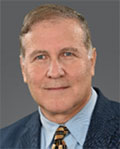
Khaled Nahlawi, PhD, PE, Distinguished Engineer, ACI
Khaled Nahlawi is a Distinguished Engineer at the American Concrete Institute (ACI), Farmington Hills, MI, USA. His role at ACI is to provide technical and administrative support to ACI’s technical committees and communicate the work of these committees to other standards developing organizations and regulatory agencies. He joined ACI in 2009 as a Senior Engineer and, among other duties, has supported the reorganization effort of ACI 318.
He is the author of ACI MNL-17(21), ACI Reinforced Concrete Design Handbook; MNL-3(20), Guide to the Code for Assessment, Repair, and Rehabilitation of Existing Concrete Structures; and MNL-66(20), ACI Detailing Manual.
He is the Secretary of the ACI Technical Activities Committee Subcommittee TAC Repair and Rehabilitation, and ACI Committee 562, Evaluation, Repair and Rehabilitation of Concrete Structures. He received his PhD from the University of Michigan, Ann Arbor, MI. He has over 25 years of experience in the design and strengthening of structures. He is a licensed professional engineer in California and Michigan.
1st Presentation Title: Sustainability Appendix of ACI 318-25
The Sustainability Appendix of ACI Code 318-25 presents essential guidance for promoting longevity and environmental stewardship in concrete construction projects. The session outlining provisions for incorporating sustainable practices and materials into the design and construction process, this appendix serves as a valuable resource for engineers, architects, and contractors seeking to minimize the environmental impact of their work. It addresses key areas such as material selection and durability, providing practical recommendations that align with current sustainability standards and best practices.
2nd Presentation Title: Exploring the Role of ACI 562 in Promoting Concrete Sustainability through Repair Codes
Introducing ACI 562-25, “Code Requirements for Assessment, Repair, and Rehabilitation of Existing Concrete Structures and Commentary,” which is the first code produced specifically for the repair of reinforced concrete. Topics covered in this presentation will include:
- The philosophy behind ACI 562
- How the code promotes consistency in repair design
- The significance of a quality assurance program for successful repairs
As the construction industry seeks ways to reduce its environmental footprint, this presentation makes the compelling case for how ACI 562 repair codes are a crucial part of the solution. This presentation will give insights on why a repair code is needed and the technical aspects of how ACI 562 contributes to concrete sustainability through repair codes and tools. The presentation session will explore the specific guidelines and recommendations outlined in ACI 562, and how implementing these standards can extend the lifespan of concrete structures.
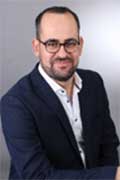
Kasem Maryamh, M.Sc., Technical Director- Falconix Engineering GmbH
Kasem Maryamh is a Professional Structural Designer. He began his academic journey at the University of Damascus, Damascus, Syria, where he specialized in structural design, graduating in 2005. From 2005 to 2011, he gained extensive experience in structural design and seismic retrofitting of high-rise buildings. He received his Master of Science in Civil Engineering from the University of Kassel, Kassel, Germany.
After completing his master’s degree, Kasem worked as a research assistant at the Technical University of Kaiserslautern, Kaiserslautern, Germany, from 2014 to 2020. His research focused on concrete recycling and the development of flood barriers made from ultra-high-performance steel fiber-reinforced concrete (UHPFRC). For his ongoing PhD thesis, he investigated the influence of various production parameters, element sizes, and fresh concrete properties on the flexural behavior of UHPFRC using computer tomography.
Presentation Title: Advancing Sustainability: Low-Carbon Building with Steel Fiber-Reinforced Concrete
Bekaert, a global leader in steel fiber production and steel fiber-reinforced concrete (SFRC) technology, is at the forefront of innovation and sustainability in construction. Falconix Engineering GmbH, a sister company of Bekaert, operates independently in SFRC design and consulting, promoting its application worldwide.
The presentation will explore how SFRC enhances strength, durability, and sustainability, providing an overview of recent advancements and case studies that demonstrate its superiority over traditional concrete.
Applications in industrial floors, pavements, rafts, and coupling beams of high-rise buildings will be highlighted. Additionally, life cycle assessments and cost comparisons will underscore SFRC’s low carbon footprint and economic benefits, supporting sustainable construction practices.
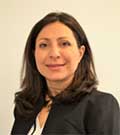
Carol Hayek, PhD, MBA, FACI, FPTI, ACI Board of Direction - Director, Chief Technical Officer, CCL - Specialized Engineered Solutions for Structures
Carol Hayek, FACI, is the Chief Technical Officer of CCL International and a Lecturer at Johns Hopkins University, Baltimore, MD, USA, where she teaches prestressed concrete design. She specializes in post-tensioned concrete and the use of new technologies.
Hayek is an ACI Fellow. She is Chair of Joint ACI-PTI Committee 320, Post-Tensioned Structural Concrete Code; and a member of the ACI Board of Direction; ACI Committee 318, Structural Concrete Building Code; and other committees. She is a Fellow of the Post-Tensioning Institute (PTI); past Chair of PTI Committee DC-20, Building Design Committee; and a past member of the PTI Technical Advisory Board. She is also a member of the International Federation for Structural Concrete (fib) Commission 5, Reinforcements.
She has authored several publications and received multiple awards. She has led multiple cutting-edge developments in new products and structural solutions and has worked on projects in the United States and worldwide covering U.S., European, and other international building codes. Her career spans research and development, structural design, sustainability, and repair and strengthening.
Hayek received her MSE and PhD in civil engineering from Johns Hopkins University; she is a member of the Advisory Committee of the university’s Department of Civil and Systems Engineering, a past member of the Engineering Alumni Leadership Committee, and the Co-Chair of the Student & Faculty Engagement Subcommittee. She received her MBA from the ESA Business School, Beirut, Lebanon, in partnership with the ESCP Business School, Paris, France.
Presentation Title: Recent Developments and Integration of Sustainability in Structural Design
The presentation will address how to tackle sustainability from a structural engineering perspective. An overview will be presented on the recent developments in sustainability, durability, resiliency, and adaptability while showcasing a few real case studies and the integration of Environmental Product Declarations (EPDs).
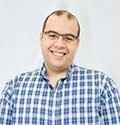
Moneeb Genedy, PhD, PE, Staff Engineer, ICC Evaluation Service, LLC
Moneeb Genedy has more than 15 years of engineering and research experience in construction materials and techniques. He currently serves as a Staff Engineer for ICC Evaluation Service, LLC, based in Birmingham, AL, USA. In this role, he conducts technical evaluations and develops technical criteria for the acceptance of innovative building products, materials, and methods that are alternatives to what may be specified in the building codes, such as the International Building Code (IBC), Dubai Building Code (DBC), and Saudi Building Code (SBC). His experience also includes design of new structures and rehabilitation and strengthening systems for existing structures. In addition, he serves as the Vice Chair of ACI Committee 548, Polymers and Adhesives for Concrete.
Presentation Title: Concrete Admixture: An Overlooked Aspect Towards Concrete Sustainability
The presentation focuses on the role of concrete admixtures in concrete construction sustainability. The concrete construction industry consumes massive amounts of water, and reducing the water consumption is often an overlooked aspect of improving concrete sustainability. A brief history of the contribution of concrete admixtures in reducing water consumption will be presented. In addition, a case study of a new family of concrete admixtures that can significantly reduce the water consumption in the concrete construction industry will be presented.
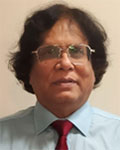
Muhammad K. Rahman, PhD, Vice President of the ACI Saudi Arabian Eastern Province Chapter
ACI member Muhammad K. Rahman, Vice President of the ACI Saudi Arabian Eastern Province Chapter, is a Researcher at Interdisciplinary Research Center for Construction and Building Materials at King Fahd University of Petroleum & Minerals (KFUPM), Dhahran, Saudi Arabia.
He received his master’s degree from the University of California, Berkley, Berkeley, CA, USA, and his PhD from KFUPM. His research interests include non-metallic reinforcement in concrete structures, fire tests on FRP bar-reinforced concrete elements, seawater and sea sand concrete, CFRP strengthening of steel and concrete structures, nanomaterials in concrete and finite element analysis and modeling. Dr. Rahman has conducted client-funded projects worth more than SR 20 million and served as Project Manager/Principal Investigator for more than 20 research projects in the recent years.
He is actively involved in supervising MS and PhD research and teaches a number of subjects at undergraduate and graduate levels, including advanced concrete design and steel structure analysis, design of tall buildings, and repair and rehabilitation of concrete structures. Dr. Rahman has written more than 150 papers in refereed journals and conferences and has been granted 15 patents in various areas.
Presentation Title: Building for the Future: GFRP Bars in Sustainable Concrete Structures
The construction industry is evolving and the innovative alternatives like Glass Fiber Reinforced Polymer (GFRP) bars, made from high-strength glass fibers embedded in a polymer matrix, are not only lightweight and corrosion-resistant but also exhibit excellent tensile strength. Studies have shown that GFRP bars offer significant advantages in terms of durability and long-term performance, particularly in structures exposed to aggressive conditions like saltwater, chemicals, or high moisture levels. Research undertaken at KFUPM on experimental investigations and numerical simulations of FRP bar reinforced concrete members and the results obtained will be highlighted.

Ahmad Khartabil, MACI, Technical Manager, Transgulf Readymix Concrete
Ahmad Khartabil is the Technical Manager at Transgulf Readymix Concrete Co. LLC. He is an international member of the ACI, the Chair of the Events Committee of the ACI-UAE Chapter, and a Certified Concrete Professional by the National Ready Mixed Concrete Association (NRMCA).Eng. Khartabil holds a master’s degree in civil engineering from Abu Dhabi University. His master's thesis, titled “Investigation on Cement-Paste Rheological Models and Fresh, Mechanical and Durability Properties of Sustainable Concrete Using Recycled Aggregates and Supplementary Cementitious Materials,” involved a comprehensive study of various aspects of fresh, hardened, and durability parameters of sustainable concrete.
Eng. Khartabil is actively engaged in various research projects. His interests include hot weather concreting, concrete durability and service life, sustainable construction materials, and the rheology of cement paste and concrete.
He was awarded the 1st FIB – UAE Graduate Fellowship Award in 2018, an initiative supported by the UAE Society of Engineers and the FIB UAE Chapter. The award recognized his research proposal titled “Improving Mechanical, Structural & Durability Properties of Sustainable Recycled Aggregate Concrete by Incorporating Nano-supplementary Cementitious Materials.”
Khartabil received the best presentation award at the 3rd International Conference on Civil and Building Materials in Singapore for his paper, “Carbonation Resistance of Sustainable Concrete Using Recycled Aggregate and Supplementary Cementitious Materials.”
Presentation Title: The Landscape of Neutral Carbon Technologies and Practices, UAE Perspective
The session will present the findings of a short survey conducted within the UAE's concrete and cement industry. The survey aims to shed light on the current state of neutral carbon practices and technologies being implemented across the sector. Also, the results would give better understanding of the industry's progress, challenges, key barriers and obstacles slow down wider implementation and future potential in achieving carbon neutrality. The survey provides a realistic assessment of the industry's trajectory.

Calum Perey, BE(Hon) BBusMan MIEAust
Calum Perey is a Principal Structural Engineer at Cundall in Dubai who has been an active member of the Institution of Structural Engineers (IStructE) UAE regional committee since 2018, and was a member of the global IStructE Council in 2020-21. He is passionate about sustainable construction, complex geometry and embodied carbon reduction. In his work designing innovative projects including mixed-used buildings, entertainment facilities and infrastructure, he has conceptualised innovative ways to leverage parametric 3D modelling, form-finding investigations and structural optimisation to achieve award-winning project designs. Calum is also dedicated to the continual progress and evolution of the engineering discipline through research, ongoing professional development, industry thought leadership and teaching, and is a part time lecturer at the Istituto Marangoni Dubai Campus.
Presentation Title: Building a Carbon Benchmark – Assessing Embodied Carbon in UAE Structures
This presentation shares the initial findings of a research project led by a carbon study group through the Institution of Structural Engineers (IStructE) UAE committee to capture data on the embodied carbon of typical buildings across the UAE. It also creates an opportunity for attendees to become part of the endeavour, which seeks to create the UAE’s first structural carbon benchmark. The presentation will explain the context of the research, the methodology utilised, initial findings from buildings across a range of asset types and the relevance of the findings for architects, engineers, developers, quantity surveyors, asset owners and investors. This knowledge is vital to support continued progress on decarbonisation of the Emirates built environment in alignment with the UAE Net Zero targets and sustainable development plans. The session will also highlight the value of industry collaboration to achieve the common goal of increasing understanding of carbon footprints in the construction industry, opportunities for achieving reductions and the specific ways in which the research will continue to evolve and progress the wider industry.
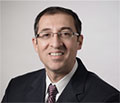
Tarek Alkhrdaji, PhD, PE, PEng, FACI Senior Vice President, Structural Technologies
Fellow ACI member Tarek Alkhrdaji is a Senior Vice President with Structural Technologies in Columbia, Maryland. Dr. Alkhrdaji has been involved in more than 600 projects involving structural repair and strengthening – many of which have received awards from ACI, PTI and ICRI.
Alkhrdaji is an active member of several professional committees including ACI Committee 440 (FRP Strengthening) and ACI Committee 562 (Repair Code) and ACI 216 (Fire Resistance).
He has written more than 40 papers and articles on repair and strengthening of structures, and he is the current chair of ACI Subcommittee 562-F (Fire).
Presentation Title: Sustainability Aspect of Repairing and Strengthening Concrete and Masonry Structures
The preservation and repair of concrete structures are crucial for sustainability, offering significant environmental benefits over replacement. The extensive use of concrete in new construction results in substantial CO2 emissions, with the production of one metric ton of concrete releasing approximately 900 kg of CO2. Repairing concrete structures instead of replacing them can lead to considerable CO2 savings. On average, repairing a structure can save 50 to 70% of the CO2 emissions compared to a full replacement. Repairing existing structures not only reduces CO2 emissions but also conserves resources, minimizes waste, and is often more cost-effective. Considering this, the impact of prioritizing repairs over replacements becomes even more significant. Acknowledging the impact of these acts on sustainability requires an understanding of the essential methods, standards, and tools for repair of existing structures. The purpose of this presentation is to educate building owners, design professionals, and contractors on the benefits of sustainable maintenance, repair, and adaptive use of concrete and masonry structures.

David Ruggiero, PhD, PEng
David Ruggiero is a Tenure Track Assistant Professor of Structural Design and Engineering at EPFL (École Polytechnique Fédérale de Lausanne), Switzerland, where he leads the Concrete Behaviour and Structural Design Laboratory (CONSTRUCT). He received his PhD in structural engineering from the University of Toronto, Toronto, ON, Canada, and practiced for 5 years as a structural engineer at RJC Toronto, where he was responsible for the design of high-rise buildings and other complex structures.
In his laboratory, Ruggiero aims to advance the sustainable design and assessment of concrete structures through an improved understanding of material behavior. His research interests include large-scale testing and analytical modeling of cracked concrete, form optimization of concrete members, the mechanical behavior of low-carbon concretes, and the overall material efficiency of irregular structures.
Ruggiero actively contributes to several industry committees, including Joint ACI-ASCE Subcommittee 445-F, Interface Shear; Canadian Standards Association Technical Committee A23.3, Design of concrete structures; and the International Federation for Structural Concrete (fib) Switzerland Group. He also serves as Chair of the Joint Committee on the GLOBE Consensus (Global Consensus on Sustainability in the Built Environment), an international initiative to promote sustainable practices in the construction sector.
Presentation Title: The Carbon Cost of Complexity: A Case for Structural Simplicity
Concrete is the most widely used construction material in the world; the sheer volume used makes it one of the single largest contributors to global CO2 emissions. However, despite its high carbon footprint, concrete also has remarkable utility, enabling the construction of adaptable and durable structures that fulfill essential human needs for shelter and infrastructure in all corners of the planet. If used judiciously, concrete has the potential to drive sustainable development at a global scale, yet we should strive to use as little as possible to achieve functional and efficient structures.
This presentation will draw on Ruggiero’s professional and research experience to critically evaluate contemporary trends in structural design, particularly in building construction. It highlights the carbon implications of structural complexity, such as irregular geometries, cantilevering volumes, and open-span spaces, which cater to aesthetic or functional demands but at an environmental cost. By exploring the link between structural complexity and embodied carbon, this talk challenges whether the trend towards more complicated structural systems is justifiable in the context of a climate crisis, and emphasizes the importance of early collaboration between engineers and architects to align aesthetic ambitions with sustainability imperatives.

Kemal Celik, Associate Professor of Civil Engineering at New York University Abu Dhabi and Global Network Associate Professor of Tandon School of Engineering at New York University
Kemal Celik is an Associate Professor of Civil Engineering at New York University (NYU) in Abu Dhabi and holds an appointment with New York University, Tandon School of Engineering, as a Global Network Associate Professor. Professor Celik is the Director of the Advanced Materials and Building Efficiency Research Laboratory (AMBER Lab) at NYU Abu Dhabi (NYUAD). He received his PhD in civil and environmental engineering from the University of California, Berkeley, with a major in structural engineering, mechanics & materials and two minors, geoengineering and material science & engineering. He received his BS and MS in civil engineering from Istanbul University, Istanbul, Turkey.
Prior to joining New York University Abu Dhabi, Celik was a Postdoctoral Scholar at the University of California, Berkeley, and Singapore‐Berkeley Building Efficiency and Sustainability in the Tropics (SinBerBEST) program, an international collaboration led by the University of California, Berkeley.
Celik’s work focuses on construction materials and building energy efficiency to develop sustainable and multi‐functional structural materials. To this end, he conducts multi‐scale and interdisciplinary research. His research interests include the characterization and development of sustainable and energy-efficient construction materials, low-carbon cements, multi‐functional building envelopes, enhancement of urban seawall sustainability, characterization and manufacturing of lunar regolith simulants, and development of an experimentally validated geospatial‐computational‐thermodynamic model for cities.
His selected and recent achievements are the NYUAD Transformative Research Award, the National Science Foundation (NSF) Award, the 2021 Golden Lion at Venice Architecture Biennale, with the National Pavilion of UAE as an exhibitor, the ADEK Award for Research Excellence (AARE 2019), NYUAD Research Enhancement Fund Award, and New York University Research Challenge Fund.
Presentation Title: Advances in Magnesium-Based Cement Production Using Desalination Brine and Sustainable Construction Materials
This presentation explores cutting-edge research and technological advancements in the field of sustainable construction materials, with a special emphasis on magnesium-based cement production utilizing desalination brine. It addresses critical global challenges, including urbanization, greenhouse gas emissions, and resource scarcity, particularly in arid regions. Innovative solutions such as brine-to-cement technology, carbon sequestration processes, and optimization of material properties for enhanced building efficiency are discussed. By examining production routes, characterization techniques, and mechanical performance, the presentation highlights the potential of these innovations to revolutionize civil engineering practices and meet the demands of a rapidly urbanizing world sustainably.

Florian Klouda, Director, International Account Coordination
Florian Klouda joined Penetron International Ltd. in 2006 and is currently in charge of managing and developing the company’s existing distribution network in regard to technical, sales and marketing support with a main focus on South-East Asia, India, China, Western Europe, Africa, Middle East, Central and South America.
In addition to his responsibilities at Penetron International Ltd., Klouda has spoken on numerous international seminars and conferences about concrete waterproofing and protection and is actively promoting methods for improving concrete durability and sustainability using permeability reducing admixtures. He is the author of various articles on concrete protection and durability enhancement articles, which have been published in various industry magazines and as white papers.
Prior to joining Penetron International Ltd., Klouda has worked in various marketing management positions in Germany and China. He holds a post graduate degree in Business Administration from the University of Applied Sciences in Ingolstadt, Germany.
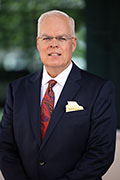
Scott M. Anderson, MS PE FACI, ACI Vice President
Anderson's expertise includes residential towers, parking garages, institutional structures, office towers, and other large, formed concrete structures. Anderson is committed to delivering high-quality projects on time and safely, working closely with clients and design teams to achieve shared goals.
Anderson holds a prominent leadership role in the concrete industry, currently serving as Vice President of the American Concrete Institute (ACI) and leading the ACI Financial Advisory Committee. He contributes to various ACI committees, including Concrete Constructability, Tolerances, and Concrete Construction Practices. Anderson led the recent effort to refresh ACI's strategic vision and goals.
An advocate for industry excellence, Anderson has been actively involved with the American Society of Concrete Contractors (ASCC) since 2003, serving as a director since 2007 and as President (2015-2016). He chaired the Education and Training Committee (2011-2014) which developed a training video detailing the basics of concrete finishing which is widely used by ASCC members. Currently, he is President of the ASCC Education, Research & Development Foundation.
Anderson holds a BS in Civil Engineering from SUNY Buffalo and an MS in Engineering from The University of Texas at Austin. He is a licensed professional engineer in Texas. Anderson's dedication to advancing the concrete industry has been recognized through his inclusion in Concrete Construction magazine's 2018 list of “Most Influential People.”
Presentation Title: Collaborative Concrete Construction: Balancing Constructability, Resiliency, and Sustainability
The construction industry's increasing focus on sustainability presents both opportunities and challenges. As we strive to create more sustainable structures, we must also ensure that they are constructable, resilient, and meet the needs of all stakeholders.
In this presentation, Scott M. Anderson will share his expertise on collaborative concrete construction, highlighting the importance of effective communication and cooperation between contractors and designers. Through real-world example and a case study, Anderson will demonstrate how collaboration can lead to more constructable, sustainable, and resilient concrete structures.
Key Takeaways
- Understanding the importance of collaboration in concrete construction
- Learning strategies for effective communication between contractors and designers
- Gaining insights into the benefits of collaborative construction, including improved constructability, sustainability, and resilience
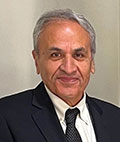
Riadh Saleh Al-Mahaidi, PhD, FACI, F.ASCE, F.IEAust, F.IIFC, F.ICE, F.BEI, Professor and Director, Smart Structures Laboratory, Swinburne University of Technology, Melbourne, Australia
Dr. Riadh Saleh Al-Mahaidi (FACI) is the Director of the Smart Structures Laboratory and a Professor of Structural Engineering at Swinburne University of Technology in Melbourne, Australia. He previously held the position of Vice President (International Engagement) at Swinburne from 2017 to 2022. Before joining Swinburne in 2010, he was the Head of the Structures Group at Monash University. He earned a BSc (Hon 1) in civil engineering from the University of Baghdad and MSc and PhD degrees in structural engineering from Cornell University in the United States. Over the past 25 years, he has focused his research and practice on the lifetime integrity of structures, with a particular interest in structural strength assessment and retrofitting using advanced composite materials. His current research projects involve strengthening bridges using fibre reinforced polymers combined with geopolymer-based bonding agents, improving the fatigue life of metallic structures using advanced composite systems and shape memory alloys, and assessing structure collapse through multi-axis hybrid testing.
Professor Al-Mahaidi is a prolific researcher, with over 260 journal and 280 conference papers published to date, as well as 18 authored/edited books and conference proceedings. To date, He has scored an H-Index of 63 and received several awards, the most recent one was the 2023 IIFC Medal for distinguished contributions to the field of FRP composites for construction through research or practical applications, or both. He was also the recipient of the 2021 IABMAS Special Service Award from the International Association for Bridge Maintenance and Safety. In 2019, he received the Magazine of Concrete Research Prize, from the Institution of Civil Engineers, UK. In 2017 he was awarded the WH Warren Medal by Engineers Australia and in 2018 the ARRB Research Impact Award.
Presentation Title: Green Geopolymer Based Adhesives for FRP Strengthening of Concrete Structures
Strengthening of concrete structures using FRP composites is a widely recognized technique for enhancing the structural integrity of deteriorated reinforced concrete (RC) structures. One prominent technique is the use of Near-Surface Mounted (NSM) FRP with epoxy adhesives. The conventional use of epoxy as a binding agent between the FRP and concrete presents durability challenges, particularly due to epoxy's low glass transition temperature (Tg), which can lead to performance issues under elevated temperatures.
The aim of this study is the development of green fly ash geopolymer adhesives with heat-expansive additives which presents a promising solution to the durability challenges associated with epoxy in FRP strengthening of concrete structures. These advancements could lead to more resilient and sustainable repair methods for reinforced concrete structures, particularly in environments subject to elevated temperatures.
The thermomechanical performance of the formulated adhesives was assessed through compressive strength tests and volumetric shrinkage measurements after subjecting the samples to two hours of firing. This evaluation is crucial for understanding how these adhesives perform under conditions that mimic real-world applications, especially in high-temperature scenarios.
The results indicated that the inclusion of a coarser heat-expansive additive significantly reduced thermal shrinkage while maintaining high mechanical properties after firing. This enhancement suggests that fly ash geopolymer-based adhesives could serve as a viable alternative to traditional epoxy, providing better durability and performance in NSM FRP strengthening applications.
Panelists
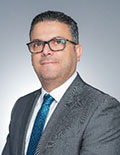
Ihab Bassiouni, Principal Building Studies Engineer, Research & Building Systems Section, Building Permits Department, Dubai Municipality
Ihab Bassiouni serves as a Principal Building Studies Engineer at the Building Permits Department of Dubai Municipality. In his role, he is responsible for the review and approval of modern and innovative methods of construction, as well as the development of approval standards and criteria. Additionally, he is engaged with conducting pertinent studies and research in the field of building construction.
Having a professional background that spans for over two decades, Bassiouni is a specialist in the sector of building construction, where his expertise reflects in areas of concrete construction processes, encompassing consulting, inspection, and professional training.
After he received his civil engineering degree from Beirut Arab University in Lebanon, Bassiouni further refined his proficiency in concrete with a diploma in Advanced Concrete Technology from the Institute of Concrete Technology in the UK.
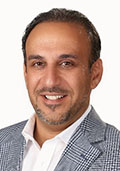
Ali Said, CEO, UAE Oman Lafarge – Member of Holcim Group
Ali Said has been General Manager at Holcim UAE Concrete since June 2023. Previously, he managed Holcim businesses in Jordan, where EcoPact Concrete was first launched and developed—the first Women on Wheels program in the MENA region. His business management experience extends to Iraq, Bahrain, Canada, and the United States. He is a board member of Lafarge Cement in Jordan and a returning judge with MENA Green Building Awards.
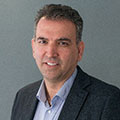
Alireza Biparva, LEED Green Associate, Technical Director and Concrete Specialist, Kryton International Inc.
Alireza Biparva currently leads Kryton International Inc.’s R&D team as the Technical Director. His areas of responsibility include project planning and management, leading a staff of engineers and technicians, and liaising on a global level with universities, testing facilities, and engineering firms. For his master’s program, Biparva designed a unique permeability apparatus at the University of British Columbia. In 2011, he developed a test method for replicating and analyzing real-life conditions of the self-sealing process. Biparva oversees several leading-edge research projects, focusing primarily on concrete durability studies and the development of innovative products for the concrete waterproofing and construction industries. Biparva has published several research papers in international journals and conferences on concrete permeability, waterproofing, abrasion resistance, ASR, durability, and sustainability. Biparva is an active member of RILEM, the American Concrete Institute, and ACI Committee 212, Chemical Admixtures.

Carol Hayek, PhD, FACI, FPTI, ACI Board of Direction, Chief Technical Officer, Specialized Engineered Solutions for Structures
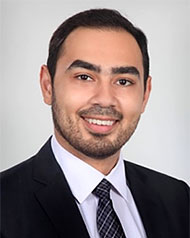
Ibrahim Abotaleb, PhD
Ibrahim Abotaleb is an Associate Professor and Associate Chair of the Department of Construction Engineering at The American University in Cairo (AUC). Abotaleb has won several awards, among which is the prestigious Thomas Fitch Rowland Award by the American Society of Civil Engineers (ASCE). Abotaleb has authored over 75 publications in prestigious international journals and conferences. His publications represent a diverse spectrum of contemporary areas such as sustainable construction practices, virtual reality, construction automation, resource optimization, green building, risk management, and artificial intelligence in construction. He co-led multiple grants, such as initiatives to decarbonize construction operations and develop human-centered virtual reality models for safety training, underscoring his commitment to fostering a sustainable construction industry. In his consulting work, Abotaleb has provided professional support in different aspects such as project development, decarbonization and ESG, construction management, and environmental compliance, of multi-billion-dollar projects involving international world-class contractors and engineering consultants.